Maths
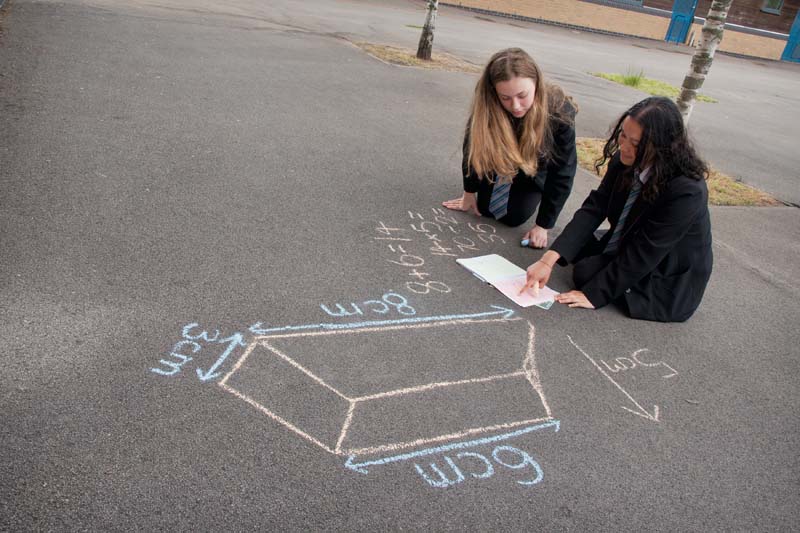
Vision Statement
All pupils at Alderman White School will have the opportunity to succeed in Maths. We believe learning should be enjoyable and we aim to foster a supportive and inclusive environment for students to make progress. We see Maths as a collaborative subject, and nourish confidence through celebrating effort and contribution as well as attainment. We use mini-whiteboards regularly, to reduce the fear of making mistakes and encourage a culture of collective responsibility, self-regulation and reflection. We have also developed a comprehensive IT-based curriculum to support remote learning and revision.
Effective dialogue, discussion and high-quality questioning & oracy are at the heart of our approach to teaching & learning. We aim to make learning fun through use of practical activities and games, and we have a common-sense philosophy to assessment and feedback.
Students are taught Maths in mixed ability groups for KS3 and then set for GCSE in Year 10. Outcomes in Maths are excellent and consistently exceed national averages. We have many students with outstanding academic achievement who are given opportunities to showcase their talents in the UKMT Maths Challenge and who also have the opportunity to study the L2 Further Maths qualification in Year 11. Intervention is offered to GCSE students requiring additional support.
Equipment
Pupils are expected to bring a blue/black and green pen, a pencil, a ruler, a protractor and a calculator to every lesson, along with their exercise book and fully charged device. (Calculators can be purchased via ParentPay)
Implementation
Pupils are taught topics in two-week blocks with a deep focus on relevant skills and their applications. Links are made to other topics in problem-solving tasks and significant consideration is given to interleaving skills to ensure long-term retention. This is supported with our homework structure: One piece of homework per fortnight will be set on a topic from approximately three weeks prior. Each topic is assessed with a brief post-test that is target-tackled by the students to highlight particular skills that require further practise. Students monitor their own progress by completing the grids on the front cover of their exercise books. Pupils also sit a more comprehensive termly assessment that is more representative of a GCSE examination, to help prepare students for meeting GCSE assessment objectives of recall, reasoning and problem solving, as well as assessing long-term retention. This also serves to develop resilience and good practices such as effective revision and exam technique. At KS3, these assessments will be graded using bands which indicate an estimated GCSE grade as follows: Emerging: GCSE grades 1-2, Developing: GCSE grades 3-4, Secure: GCSE grades 5-6, Mastery: GCSE grades 7-9. At GCSE, these termly assessments will take the form of past GCSE examinations and will inform pupils’ Current grade. We then use historic internal progress data from similar starting points to provide pupils with Predicted GCSE grades. Understanding this methodology is helpful for pupils and parents to contextualise progress and performance and to inform actions that may be required to achieve Target grades.
Useful Documents & Links
Below you will find a copy of our Scheme of Learning for all year groups (which is available in greater depth to students of Alderman White on Google Classroom) and useful AQA links for information and resources pertaining to GCSE Maths & L2 Further Maths.
- AQA Maths GCSE: https://www.aqa.org.uk/subjects/mathematics/gcse/mathematics-8300
- L2 Further Maths: https://www.aqa.org.uk/subjects/mathematics/aqa-certificate/further-mathematics-8365
Additional Resources
We offer a range of revision guides to support students working at all levels that can be purchased via ParentPay. (Please speak to your class teacher if you are unsure which is most suitable.)
We also encourage the use of several online resources:
- Google Classroom: https://classroom.google.com
- Dr Frost Maths: https://www.drfrostmaths.com
- CorbettMaths: https://corbettmaths.com/contents
Any further questions you have should be directed to This email address is being protected from spambots. You need JavaScript enabled to view it.
Science

Rationale
We believe that the students at Alderman White School deserve a broad, balanced and ambitious Science curriculum, rich in skills and knowledge. Throughout their science education, students learn to recognise the power of rational explanation and we strive to ignite curiosity to develop a sense of excitement about natural phenomena. Our curriculum supports students to become scientifically literate participants in society encouraging them to question socio-scientific matters and make informed decisions supported by current evidence. Our students will be prepared for future learning or employment by ensuring our curriculum provides a platform for more advanced science-based study, providing a gateway into a wide range of career opportunities.
Our Science curriculum will give students the opportunity to:
- Develop practical skills by working scientifically;
- Articulate scientific concepts clearly and precisely;
- Remedy misconceptions;
- Understand the nature, processes and methods of Science;
- Develop logical thinking and problem-solving skills
- Develop analytical skills to scrutinise data presented in any format to draw out meaning by ensuring students are able to critically analyse and evaluate data, stories and phenomena in everyday situations
- Challenge received wisdom by considering new evidence and ideas;
- Combine basic Maths and English skills in context to help students develop their application skills
- See connections between subject areas and become aware of the big ideas underpinning scientific knowledge and understanding;
- Develop logical thinking and problem-solving skills
- Learn how to be safe and evaluate risks in everyday life and in particular scientific contexts
- Develop learning skills and independence so they can go on to be life-long learners
Both KS3 and KS4 Science incorporate a wide range of Biology, Chemistry and Physics topics. We follow the content set out by the National Curriculum and the order we have chosen to teach the content in is closely linked to the BEST curriculum maps, designed using research-based evidence. We make use of both AQA KS3 resources and NC 2000 units plans. Our practice incorporates spaced learning backed up by continual and consistent long-term retrieval practice within both lessons and assessments.
Students have 8 lessons a fortnight in Year 7 to 9. After Easter of Year 9 students move on to study GCSE content by exploring the links between the Topic of Energy in all 3 disciplines.
During Key Stage Four students have 6 double lessons per fortnight (2 x Biology, 2 x Chemistry and 2 x Physics) if they follow the AQA Trilogy Combined route. Triple Science students have 1 extra double lesson per fortnight for each science discipline. The route followed is determined by individual student specialism choices.
Delivery
Our schemes of learning incorporate a wide variety of assessment opportunities to ensure the following criteria are implemented throughout both KS3 and KS4.
- Delivering high quality lessons which allow students to access new ideas about a wide variety of Biology, Chemistry and Physics topics which closely follows the NC.
- Delivering lessons which stretch and challenge the most able students yet support those who may find some content challenging by use of strong differentiation.
- Ensuring retrieval of information is a key feature of lessons and spaced learning is built into schemes of learning and assessments.
- Disciplinary literacy aimed at developing scientific vocabulary which supports KS4 exam literacy.
- Developing metacognition skills to build independent learners.
- Modelling problem solving techniques and producing scaffolds to build complexity.
- Ensuring the cognitive load is manageable by using knowledge organisers as a key resource for homework and revision.
- Providing ample opportunities to practise and develop practical skills consistently and continually.
- Use of real-world examples within lessons and home learning to make links between the classroom and wider world explicit.
- Discussion of career opportunities.
- Continued development of IT use to deliver face-to-face lessons and remote delivery.
- Developing relationships with primary colleagues to establish baseline expectations in order to build knowledge from a firm base.
- Drawing on knowledge from feeder primary schools and developing links to plan for effective transition.
Outcomes
Our learners will develop a solid knowledge and skills base to allow success at KS4 whilst enabling them to make links between the broader context of Science and the wider world.
- Smooth transition between KS2 and KS4
- Students will be able to build links within and between topics.
- Students will develop strong literacy and numeracy skills which can be applied whole school.
- Students will have a firm knowledge base to build on allowing rapid progress between Key Stages.
- Students will be able to establish the importance of scientific concepts in the wider world and explore career pathways with science as an essential element.
Performing Arts: Music and Drama
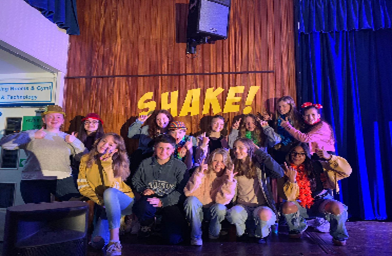
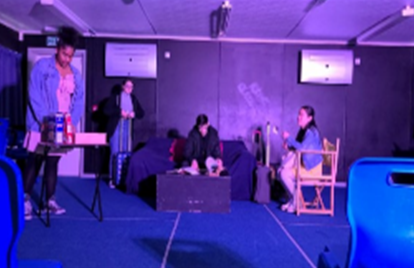
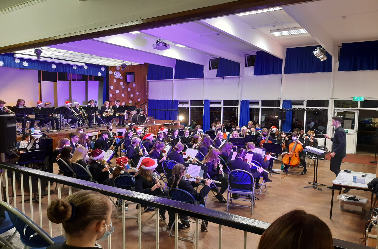
Performing Arts at Alderman White aims to develop an appreciation and understanding of Drama and Music both as audience and performer. Throughout Key Stage 3 students have the opportunity to study the work of a range of artists and genres; exploring the context of the Music/Drama as well as the specific skills related to it. There is a strong emphasis on developing transferable skills such as team work, communication and confidence as well as an awareness of the importance of the Arts in society.
Assessment takes place through a range of practical and theoretical tasks and is broken into three strands: Creating, Performing and Evaluating.
Alongside the core curriculum we aim to offer a broad extra-curricular programme including instrumental tuition, productions, a range of musical ensembles and choirs as well as opportunities to attend performances and work with professional artists that we believe provide an opportunity for all to explore and appreciate the Performing Arts to their fullest.
By the end of Key Stage 3 (Year 7-9) students should:
- Know how to perform and recognize work from a range of genres and their historical and social contexts
- Know how to reflect on their own work critically and offer feedback to others in a constructive manner using subject specific vocabulary
- Be able to perform in front of others with confidence and a good degree of accuracy relating to the specific genre
- Be able to explore their creative ideas and justify their decisions in an analytical and detailed manner
- Be prepared to work collaboratively with others to create performance
By the end of Key Stage 4 (Year 10-11) students who take (subject) as a specialism should:
- Know how to create/compose work of a sophisticated standard using professional approaches
- Know how to confidently and articulately identify and apply the theories of key practitioners to their own work
- Be able to perform in front of an audience utilizing technical aspects of performance
- Be able to critically analyse the work of others, including professional productions, using subject specific vocabulary
- Be prepared to further their studies within the Arts as well as understand the job opportunities available within this sector, both performance and technical/administrative.
The courses that we currently deliver are:
Curriculum Overviews:
Please see below:
Religious Studies and Social Sciences
Religious Studies

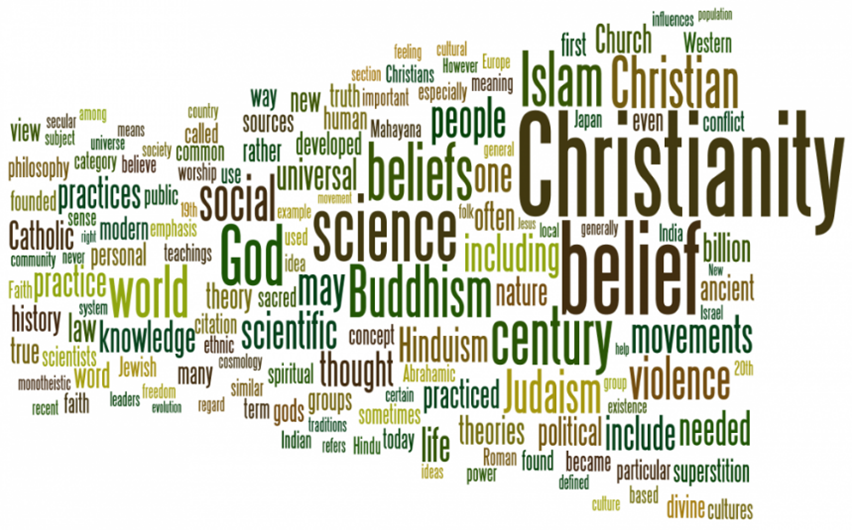
Curriculum vision
Our aims and visions are to teach young people to begin to understand the major world religions beliefs, practices and teachings. Pupils will learn by questioning, explaining and evaluating these and formulate their own judgements and views on the subject matter. As they progress through the years, pupils will study the ethical and philosophical topics that challenge religious and non-religious thinkers today. We hope to develop their empathy and appreciation of diversity of beliefs and perspectives. Our pupils have the opportunity to enrich their learning through a range of visiting external speakers, workshops and enrichment clubs.
By the end of KS3, we would like all pupils that study religious studies to:
A - Know about and understand religions and world views
B - Express ideas and insights into religions and world views
C - Gain and deploy the skills for learning from religions and world views
They will develop these aims further by:
- Developing knowledge of different belief systems and behaviours of people in the UK and worldwide while understanding similarities and differences through the idea of diversity.
- Building on the skills of analysis, evaluation, empathy and debate while being able to showcase their own philosophical and ethical views.
- Developing a passion and awareness of the big and small issues of life in a personal and global perspectives.
Our pupils will have the opportunity to enrich their learning through a range of visiting speakers, workshops and extras curricular enrichment clubs.
Please see the attachments at the bottom of the page for the curriculum plan.
By the end of KS4 GCSE Religious Studies, we would expect pupils to:
Develop their knowledge and understanding of:
- Christianity, Islam, Non-religious beliefs such as atheism and humanism
- Religious beliefs, teachings, practices, and sources of wisdom and authority, including through their reading of key religious texts and other texts
- Religious traditions of Great Britain that are, in the main, Christian
- Develop their ability to construct well-argued, well-informed, balanced and structured written arguments, demonstrating their depth and breadth of understanding of the subject
- Engage with questions of belief, value, meaning, purpose, truth, and their influence on human life
- Reflect on and develop their own values, beliefs and attitudes in the light of what they have learnt and contributes to their preparation for adult life in a pluralistic society and global community.
- Build on their understanding of the relationships between people
- Become informed about common and diverse views within traditions in the way beliefs and teachings are understood and expressed
- Understand that religious traditions in Great Britain are diverse and include the following religions: Christianity, Islam, Judaism, as well as non-religious such as atheism and humanism.
Please see the attachments at the bottom of the page for the curriculum plan.
![]() EDUQAS GCSE Religious Studies- Route A
EDUQAS GCSE Religious Studies- Route A
![]() Careers with Religious Studies or Philosophy and Ethics
Careers with Religious Studies or Philosophy and Ethics
KS4 non-examined Religious Studies
- All pupils cover the RE requirement for KS4 RE within the modern studies curriculum. Modern Studies covers the statutory requirements of RE, Citizenship, PSHE, and Careers.
- Within RS- pupils will cover the SOW detailed in the curriculum plan. Please see the attachments at the bottom of the page for the curriculum plan.
The religions and topics are covered, so that pupils can learn and understand the beliefs and teachings of 'minor' world religions and critically compare and evaluate their beliefs to other religions or world views. The social issues are taught to deepen the pupil’s knowledge and question the meaning of life. The prejudice and discrimination units fit into the RSHE policy and taught from the religious perspectives. Pupils are invited to discuss and question the issues raised in a meaningful and empathetic way where they learn from each other.
GCSE Psychology
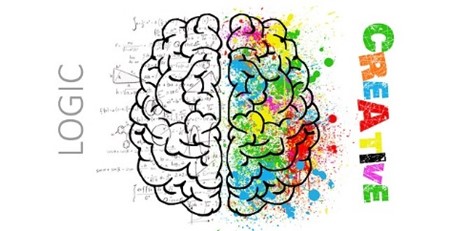
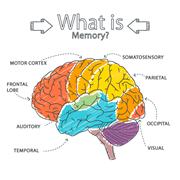
Curriculum vision
Our aims and visions are to help pupils develop a love of learning in understanding how the mind can influence human behaviour as well as developing our pupils into well rounded active citizens. Through the study of a broad range of topics such as neuropsychology, mental health, social influence, aggression and relationships. Our pupils develop a tolerance, awareness and respect towards other individuals. Pupils are challenged in class to consider alternative ideologies and concepts, as well as how behaviour affects various and diverse cultures and upbringing experiences. Pupils will be able to develop cross curricular links drawing on knowledge acquired in maths and science when focusing on research methods. Pupils will be given the opportunity to explore known case studies and published research articles conducted by psychologists renowned in their field.
By the end of KS4 we would like pupils to:
- Have developed skills in critical analysis, independent thinking and research
- Demonstrate knowledge and understanding of psychological ideas, processes, procedures and theories in relation to developmental psychology, perception, memory and research methods
- Apply psychological knowledge and understanding of development, perception, memory and research methods to a range of contexts
- Analyse and evaluate psychological ideas, information, processes and procedures in relation to development, perception, memory and research methods
- Make judgements, draw conclusions and produce developments or refinements of psychological procedures based on their reasoning and synthesis of skills
- Evaluate therapies and treatments including in terms of their appropriateness and effectiveness
- Show how psychological knowledge and ideas change over time and how these inform our understanding of behaviour
- Demonstrate the contribution of psychology to an understanding of individual, social and cultural diversity
- Develop an understanding of the interrelationships between the core areas of psychology
- Show how the studies for topics relate to the associated theory.
- Developed knowledge in relation to ethical, practical research activities, involving: designing research, conducting research, analysing and interpreting data
Please see the attachments at the bottom of the page for the curriculum plan.
![]() Careers with Psychology qualification
Careers with Psychology qualification
Health and Social Care
OCR Cambridge Nationals Levels 1 and 2

Curriculum vision
Our aims and visions are to cover as many aspects of health and social care, from studying values of care to supporting individuals through life events. We aim to develop pupil’s independence and research skills as well as promoting literacy and written communication. We want pupils to be actively engaged, enthused and inspired by their experiences in the classroom to the point where they may consider a career in one of the Health and social care areas- child care, health care or social care. The optional unit had been selected to expose pupils to some of the most interesting and engaging material that the exam board offers. This includes studying public health issues and their impact on society, and factors on healthy living and well-being. Pupils will be able to deliver a whole school presentation on promoting healthy lifestyles.
By the end of key stage 4, we would like pupils to:
- Understand and apply the fundamental principles and concepts of the rights of individuals, person centred values, effective communication and how to protect individuals in health and social care settings
- Develop learning and practical skills that can be applied to real-life contexts and work situations
- Think creatively, innovatively, analytically, logically and critically
- Develop independence and confidence in using skills that would be relevant to the health and social care sector and more widely.
- Understand the rights of individuals and person-centred values and how to apply these when working with service users
- Have knowledge and understanding of how to protect individuals through infection prevention, safeguarding and safety and security measures
- Understand growth and development through the life stages
- Understand life events and how to support individuals through them
- Have developed transferable skills, such as evaluation, planning, presentation/delivery and research skills.
Please see the attachments at the bottom of the page for the curriculum plan.
Physical Education
(PE)
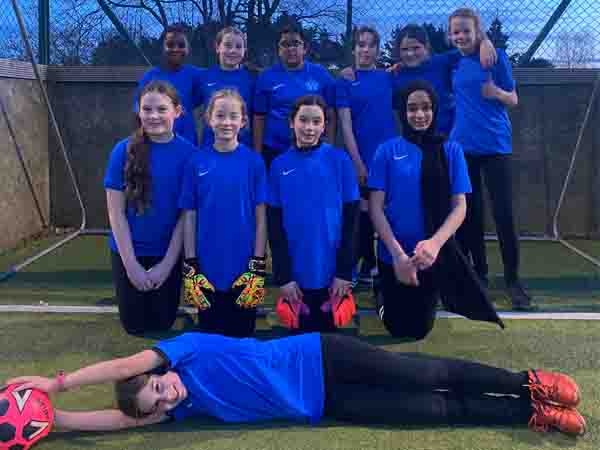
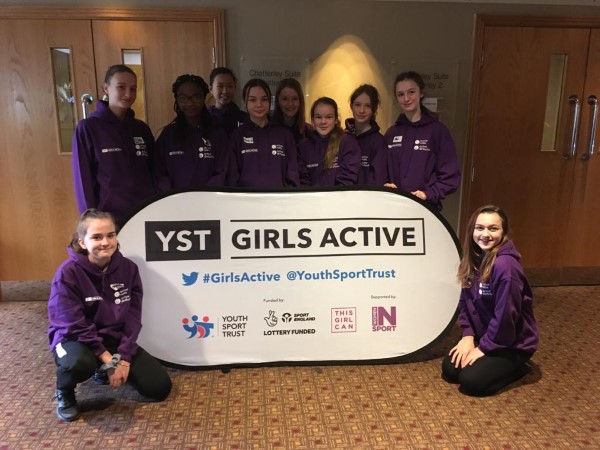
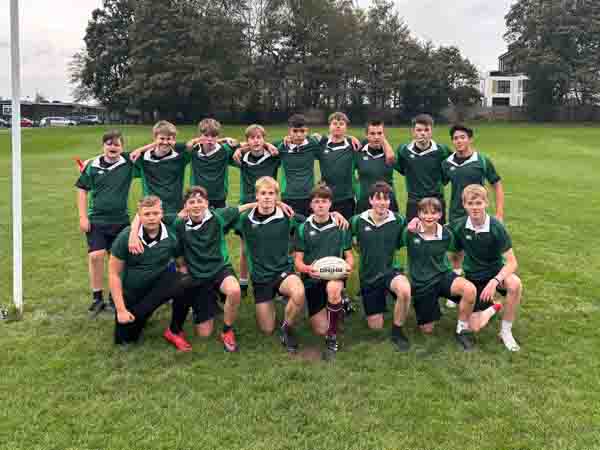
Our Vision
Our subject area allows pupils to develop a wide range of unique, transferrable and lifelong skills that promote personal, mental and social well-being. Our department develops more than just excellence in sport, it teaches inquisitiveness, creativity, confidence and leadership. We offer a wide range of relevant enrichment activities that contribute to the positive reputation of the Trust within the community. Staff and students build meaningful relationships characterised by respect and a shared ethos where students strive to reach their potential within a culture of excellence.
Where will students be at the end of the KS3 PE curriculum?
In line with the National Curriculum, our Physical Education Curriculum aims to teach students to:
- Know, understand and apply the 6 key concepts of leading a healthy and active lifestyle which include: principles of training, methods of training, fitness components, fitness testing and short- and long-term effects of exercise on the body systems.
- Use a range of tactics and strategies to overcome opponents in direct competition through team and individual games.
- Perform dances using advanced dance techniques in a range of dance styles and forms.
- Develop and demonstrate a good level of skill, techniques and decision making in order to improve their performance in competitive/formal situations.
- Develop their technique and improve their performance in other competitive sports [for example, athletics and gymnastics].
- Take part in Outdoor and Adventurous activities, such as orienteering, which present intellectual and physical challenges and to be encouraged to work in a team, building on trust and develop skills to solve problems.
- Analyse and evaluate their own and others performance and suggest ways to improve in order to produce effective outcomes.
- Work collaboratively with other students to plan, organise and lead a sports session to larger groups.
Where will students be at the end of the KS4 PE curriculum?
Pupils will tackle complex and demanding physical activities. They will get involved in a range of activities that develops personal fitness and promotes an active, healthy lifestyle beyond their school years. They will be extensively involved in Leadership activities. Pupils will be taught to:
- Use and develop a variety of tactics and strategies to overcome opponents in team and individual games [for example, badminton, basketball, dodgeball, football, unihoc, netball]
- Develop their technique and improve their performance in other competitive sports, [for example, athletics and striking and fielding], or other physical activities [fitness]
- Take part in further outdoor and adventurous activities in a range of environments which present intellectual and physical challenges and which encourage pupils to work in a team, building on trust and developing skills to solve problems.
- Continue to take part regularly in competitive sports and activities outside school hours and through community links or sports clubs.
Where will students be at the end of the GCSE PE curriculum?
We follow the OCR specification.
Candidates will learn about the following topics:
- Physical factors affecting performance (1 hour exam 30% grade contribution)
- Socio-cultural issues and sports psychology (1 hour exam 30% grade contribution)
- Practical performances in 3 sports (Non-exam assessment 30% grade contribution)
- Analysis and evaluation of performance (Non-exam assessment 10% grade contribution)
![]()
Alderman White School is a member of
The White Hills Park Trust.

Website design and content
© The White Hills Park Trust 2025
